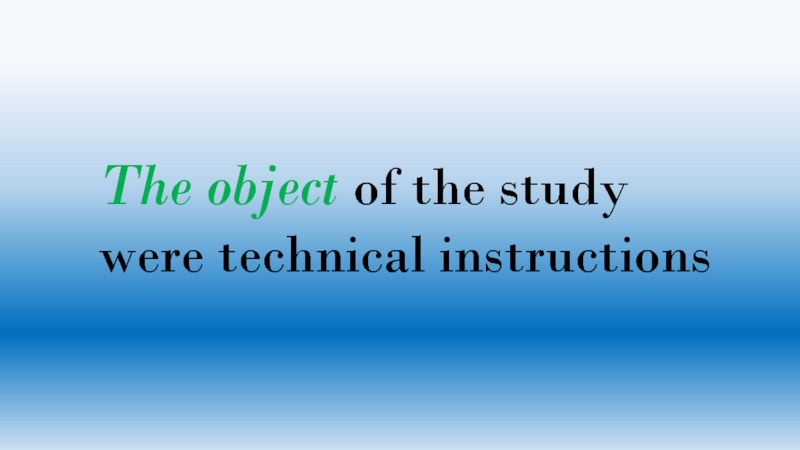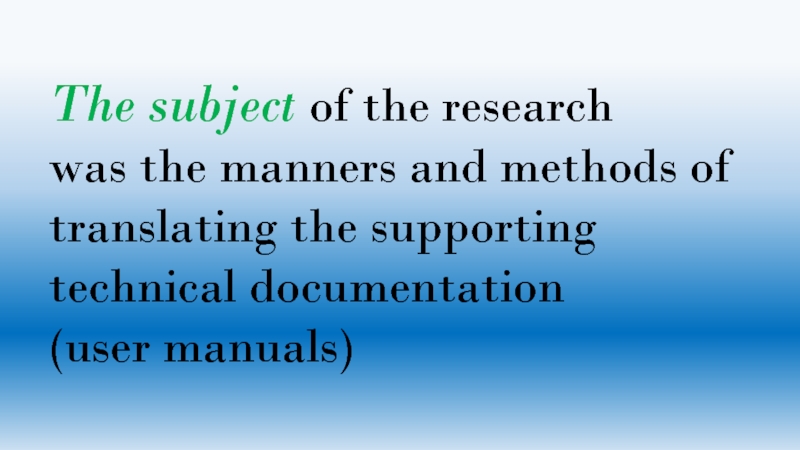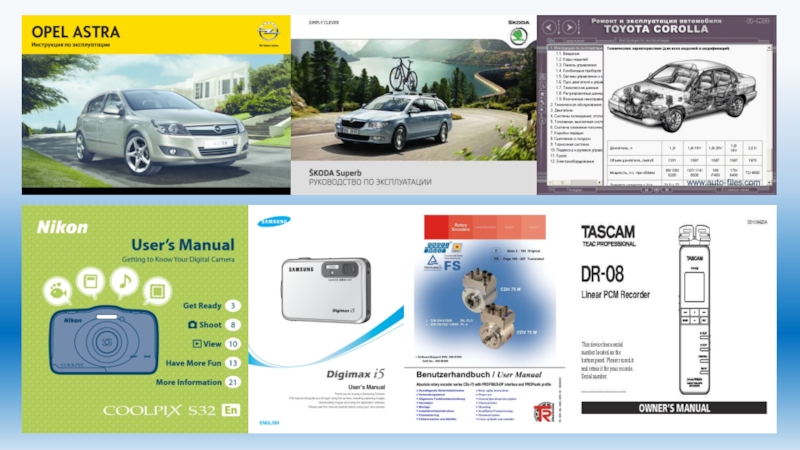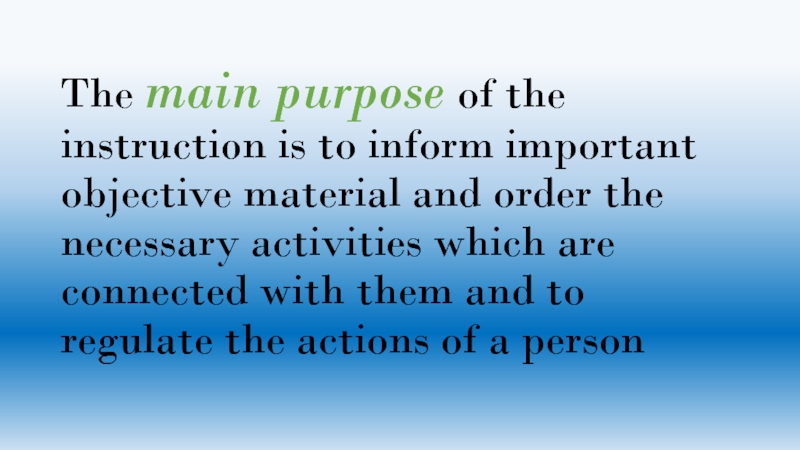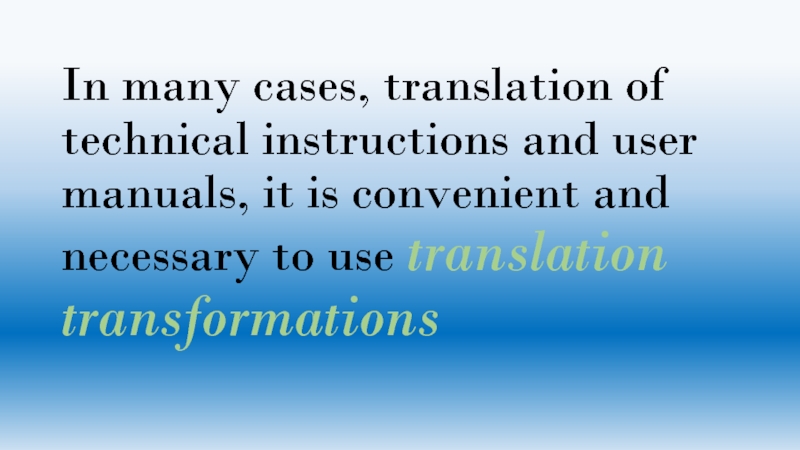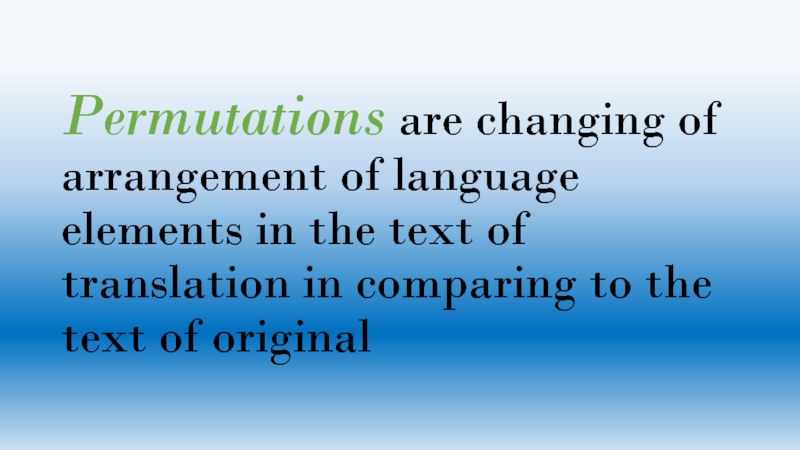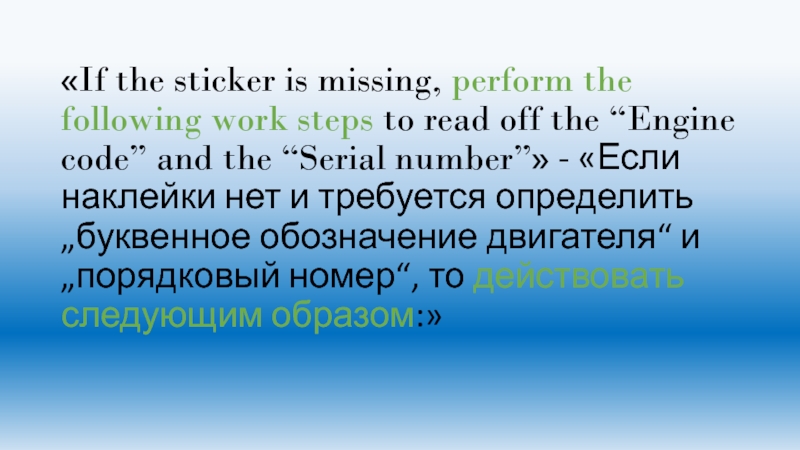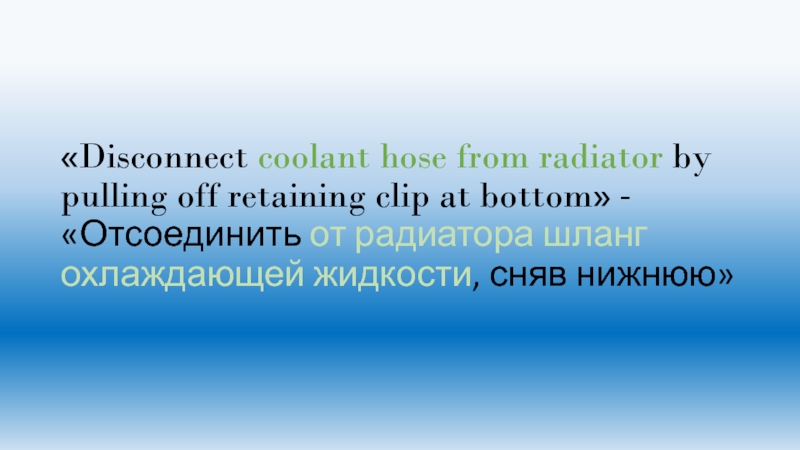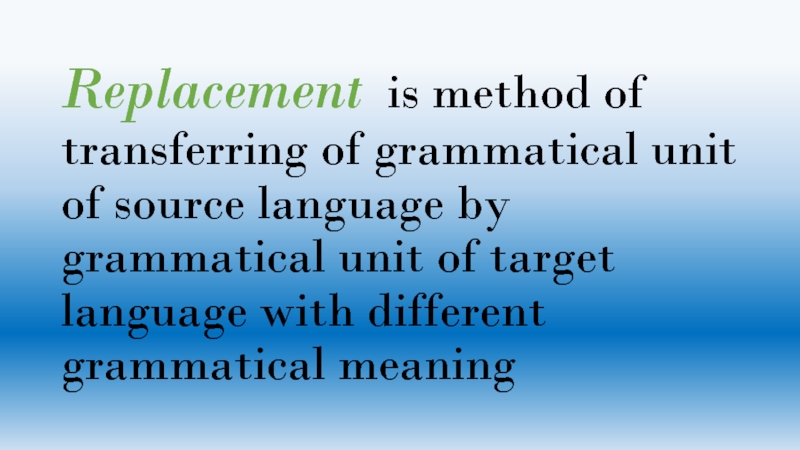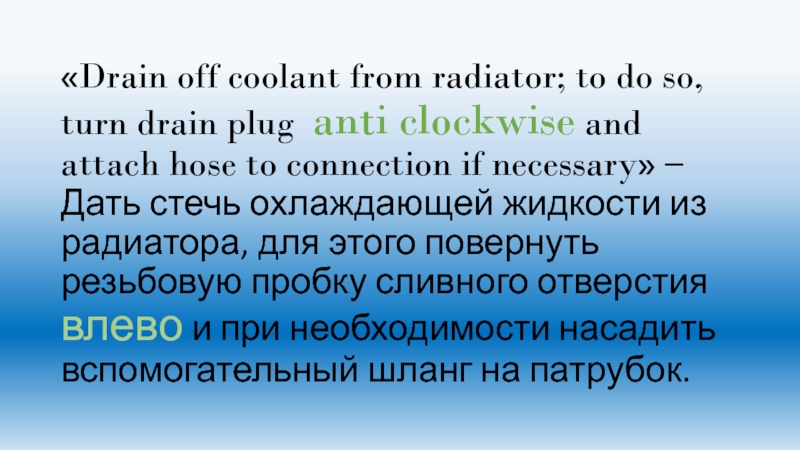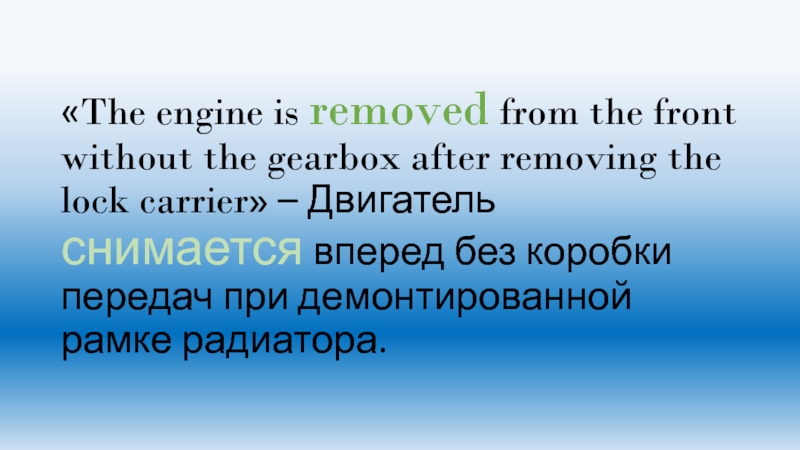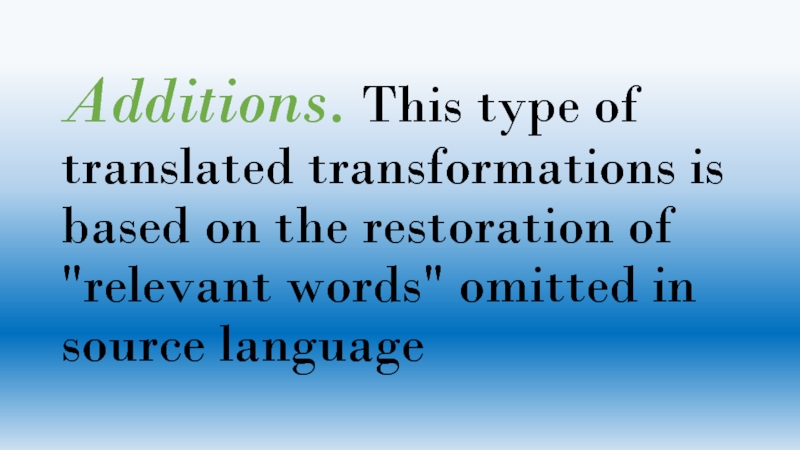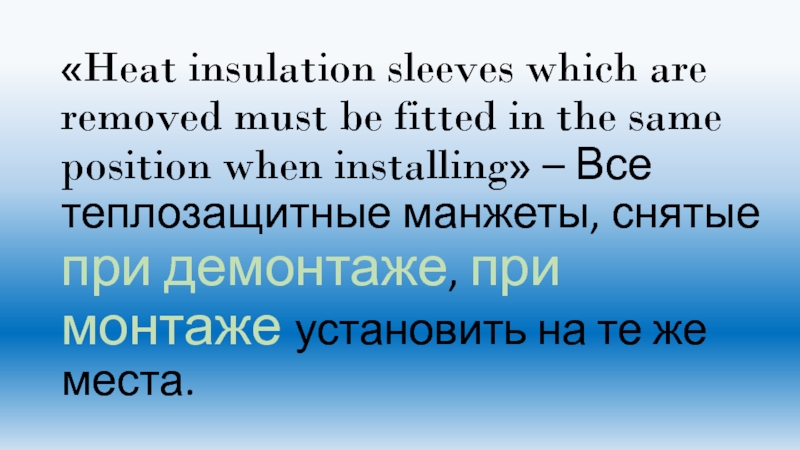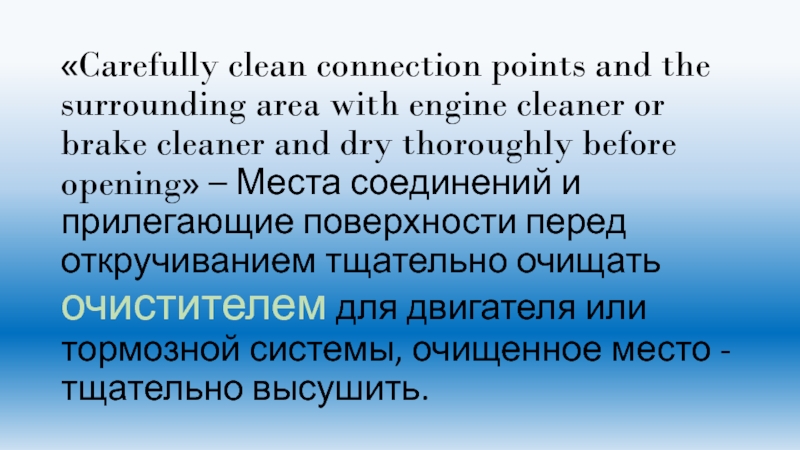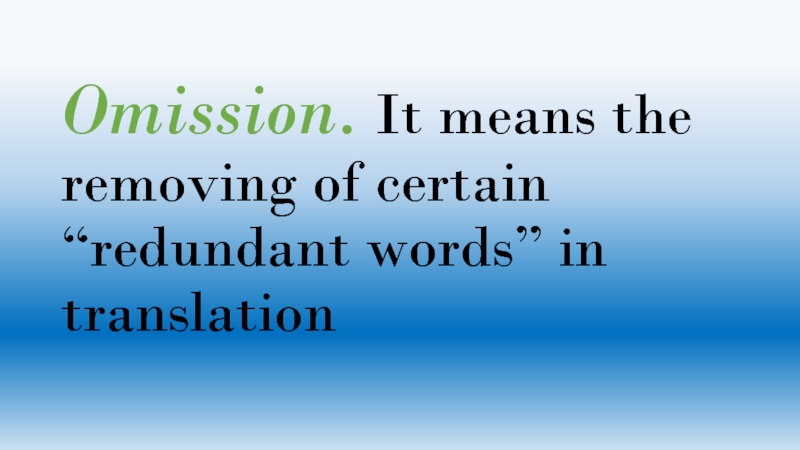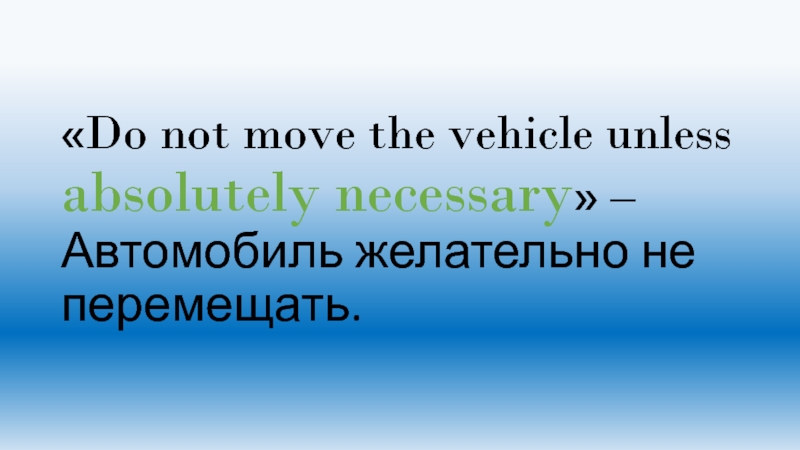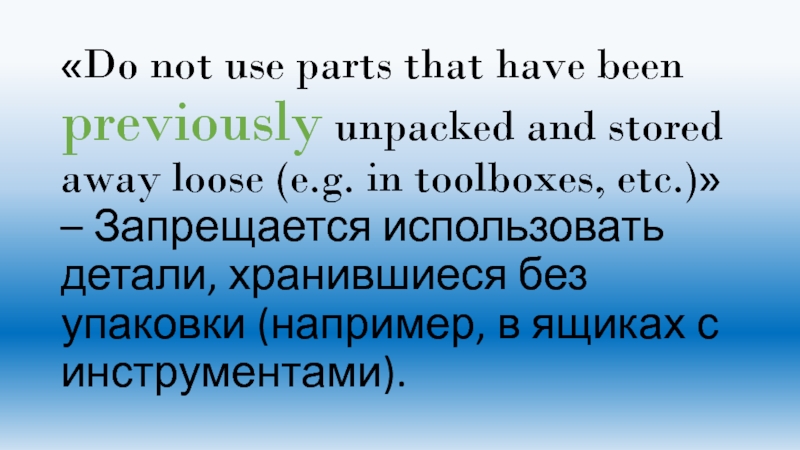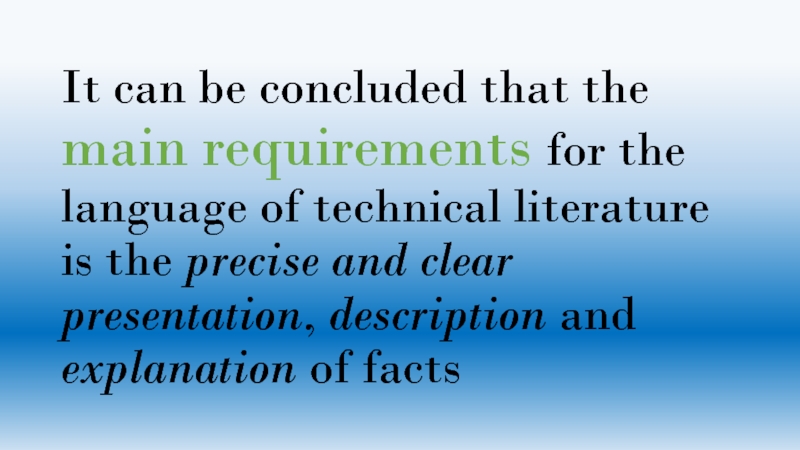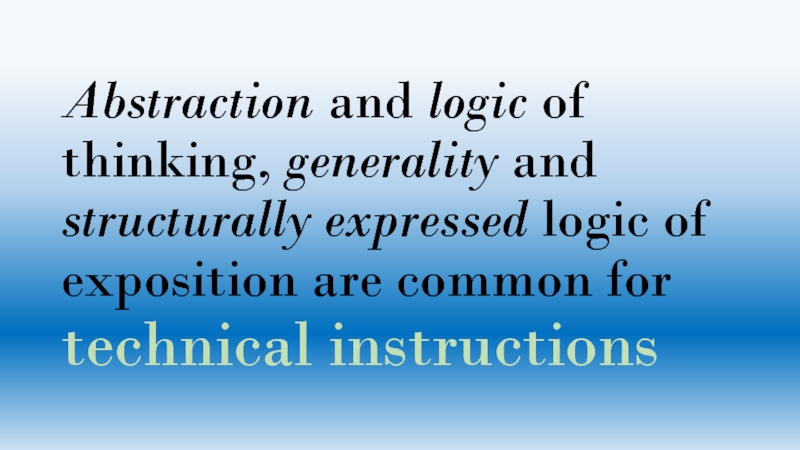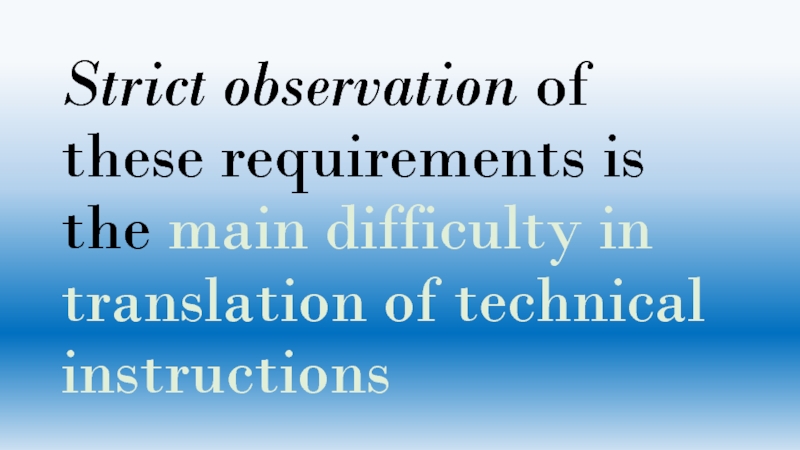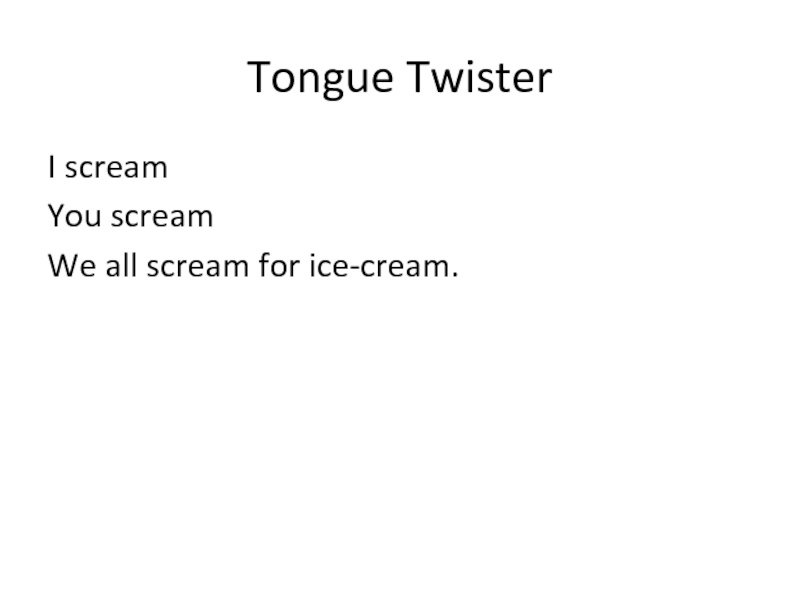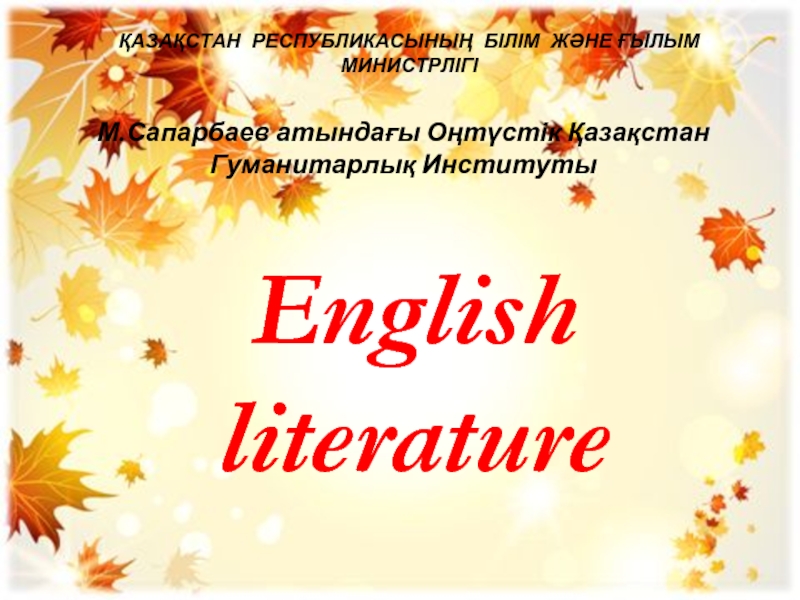- Главная
- Разное
- Дизайн
- Бизнес и предпринимательство
- Аналитика
- Образование
- Развлечения
- Красота и здоровье
- Финансы
- Государство
- Путешествия
- Спорт
- Недвижимость
- Армия
- Графика
- Культурология
- Еда и кулинария
- Лингвистика
- Английский язык
- Астрономия
- Алгебра
- Биология
- География
- Детские презентации
- Информатика
- История
- Литература
- Маркетинг
- Математика
- Медицина
- Менеджмент
- Музыка
- МХК
- Немецкий язык
- ОБЖ
- Обществознание
- Окружающий мир
- Педагогика
- Русский язык
- Технология
- Физика
- Философия
- Химия
- Шаблоны, картинки для презентаций
- Экология
- Экономика
- Юриспруденция
The difficulties of translating technical instructions презентация
Содержание
- 1. The difficulties of translating technical instructions
- 2. The object of the study were technical instructions
- 3. The subject of the research was
- 5. The main purpose of this studying is
- 6. As results of the work, the following conclusions can be drawn:
- 7. The main purpose of the instruction is
- 8. In many cases, translation of technical instructions
- 9. Permutations are changing of arrangement of language
- 10. «If the sticker is missing, perform the
- 11. «Disconnect coolant hose from radiator by pulling
- 12. Replacement is method of transferring of grammatical
- 13. «Drain off coolant from radiator; to do
- 14. «The engine is removed from the front
- 15. Additions. This type of translated transformations is
- 16. «Heat insulation sleeves which are removed must
- 17. «Carefully clean connection points and the surrounding
- 18. Omission. It means the removing of certain “redundant words” in translation
- 19. «Do not move the vehicle unless absolutely necessary» – Автомобиль желательно не перемещать.
- 20. «Do not use parts that have been
- 21. Using of these techniques helps to achieve an adequate translation
- 22. It can be concluded that the main
- 23. In turn, technical instructions are characterized by
- 24. Abstraction and logic of thinking, generality and
- 25. Strict observation of these requirements is the main difficulty in translation of technical instructions
Слайд 3The subject of the research was the manners and methods of
translating the supporting
technical documentation
(user manuals)
Слайд 5The main purpose of this studying is consideration of problems of
adequacy
and equivalence in translating texts of
technical instructions by no native
speakers of the target language
Слайд 7The main purpose of the instruction is to inform important objective
material and order the necessary activities which are connected with them and to regulate the actions of a person
Слайд 8In many cases, translation of technical instructions and user manuals, it
is convenient and necessary to use translation transformations
Слайд 9Permutations are changing of arrangement of language elements in the text
of translation in comparing to the text of original
Слайд 10«If the sticker is missing, perform the following work steps to
read off the “Engine code” and the “Serial number”» - «Если наклейки нет и требуется определить „буквенное обозначение двигателя“ и „порядковый номер“, то действовать следующим образом:»
Слайд 11«Disconnect coolant hose from radiator by pulling off retaining clip at
bottom» - «Отсоединить от радиатора шланг охлаждающей жидкости, сняв нижнюю»
Слайд 12Replacement is method of transferring of grammatical unit of source language
by grammatical unit of target language with different grammatical meaning
Слайд 13«Drain off coolant from radiator; to do so, turn drain plug
anti clockwise and attach hose to connection if necessary» – Дать стечь охлаждающей жидкости из радиатора, для этого повернуть резьбовую пробку сливного отверстия влево и при необходимости насадить вспомогательный шланг на патрубок.
Слайд 14«The engine is removed from the front without the gearbox after
removing the lock carrier» – Двигатель снимается вперед без коробки передач при демонтированной рамке радиатора.
Слайд 15Additions. This type of translated transformations is based on the restoration
of "relevant words" omitted in source language
Слайд 16«Heat insulation sleeves which are removed must be fitted in the
same position when installing» – Все теплозащитные манжеты, снятые при демонтаже, при монтаже установить на те же места.
Слайд 17«Carefully clean connection points and the surrounding area with engine cleaner
or brake cleaner and dry thoroughly before opening» – Места соединений и прилегающие поверхности перед откручиванием тщательно очищать очистителем для двигателя или тормозной системы, очищенное место - тщательно высушить.
Слайд 19«Do not move the vehicle unless absolutely necessary» – Автомобиль желательно
не перемещать.
Слайд 20«Do not use parts that have been previously unpacked and stored
away loose (e.g. in toolboxes, etc.)» – Запрещается использовать детали, хранившиеся без упаковки (например, в ящиках с инструментами).
Слайд 22It can be concluded that the main requirements for the language
of technical literature is the precise and clear presentation, description and explanation of facts
Слайд 23In turn, technical instructions are characterized by logical, precise, one-valued expression
of thought, using of speech tools, devoid of emotional meanings and expressive feelings
Слайд 24Abstraction and logic of thinking, generality and structurally expressed logic of
exposition are common for technical instructions
Слайд 25Strict observation of these requirements is the main difficulty in translation
of technical instructions

